Curriculum Lead: Rebecca Ackland
Intent:
A mathematician at Bridge Learning Campus will confidently build their number fluency, problem solving, reasoning and spatial awareness throughout their time in primary. Pupils will be able to recognise the importance of mathematics and apply their skills and knowledge confidently in a range of contexts, including real life.
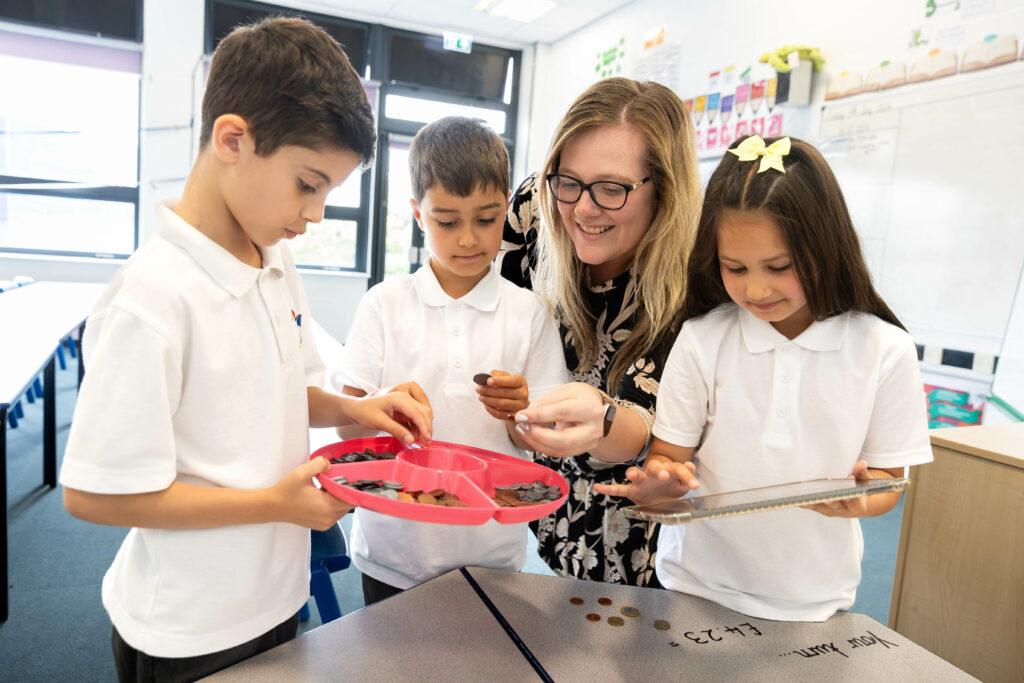
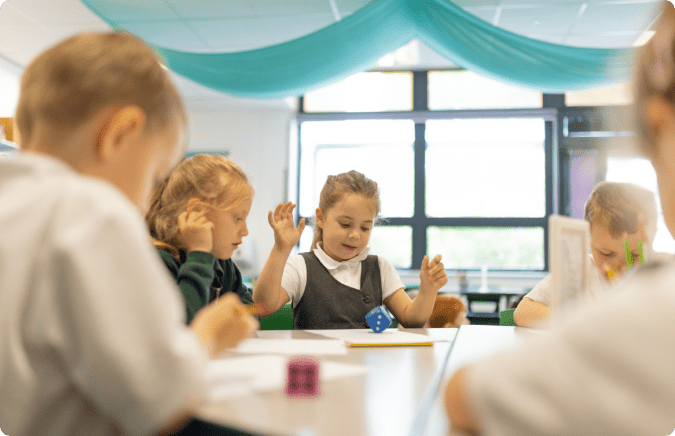
Implementation:
At Bridge Learning Campus, we have been working hard to implement the mastery approach to mathematics. We draw upon our children’s oracy skills to develop reasoning using stem sentences which inspire mathematical thinking through respectful discussion.
As a school, we recognise the importance of early numbers and have implemented an EYFS curriculum which is rich in subitising, manipulating, and partitioning. This supports a deeper understanding of numbers and provides a strong foundation for number fluency throughout the school. This is strengthened through the use of additional maths resources which can be accessed either in school or at home empowering the children to further support their learning journey.
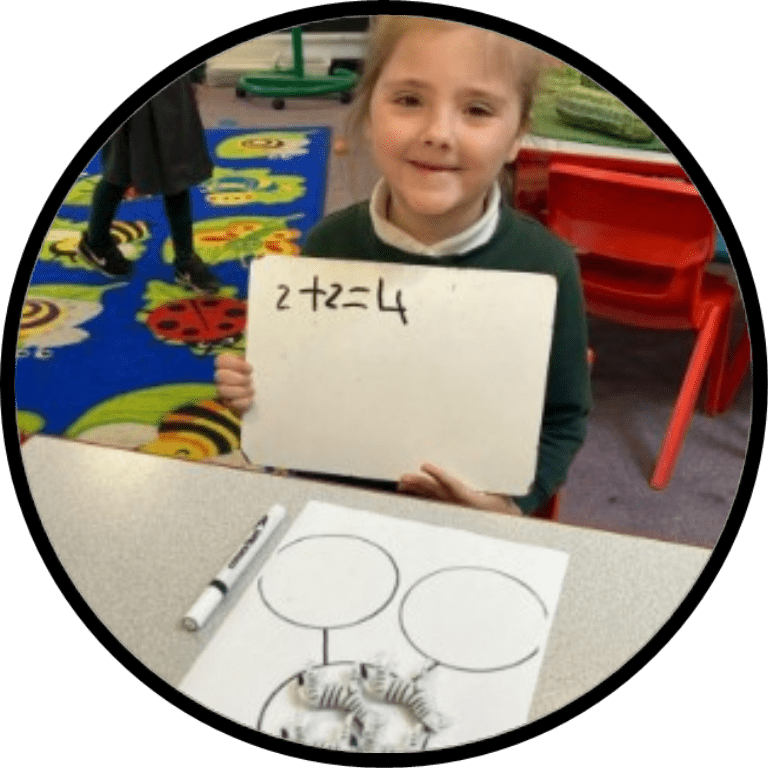
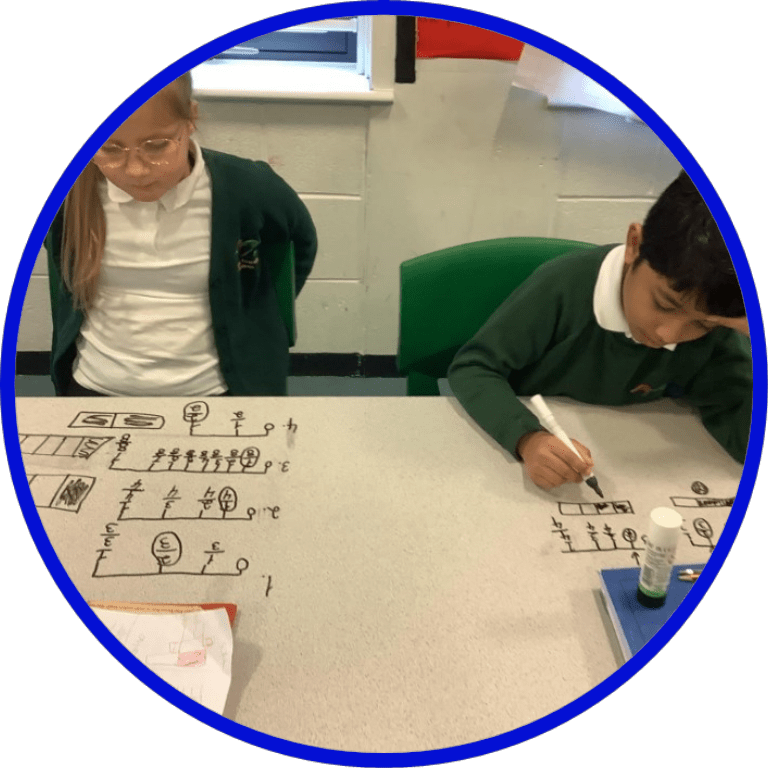
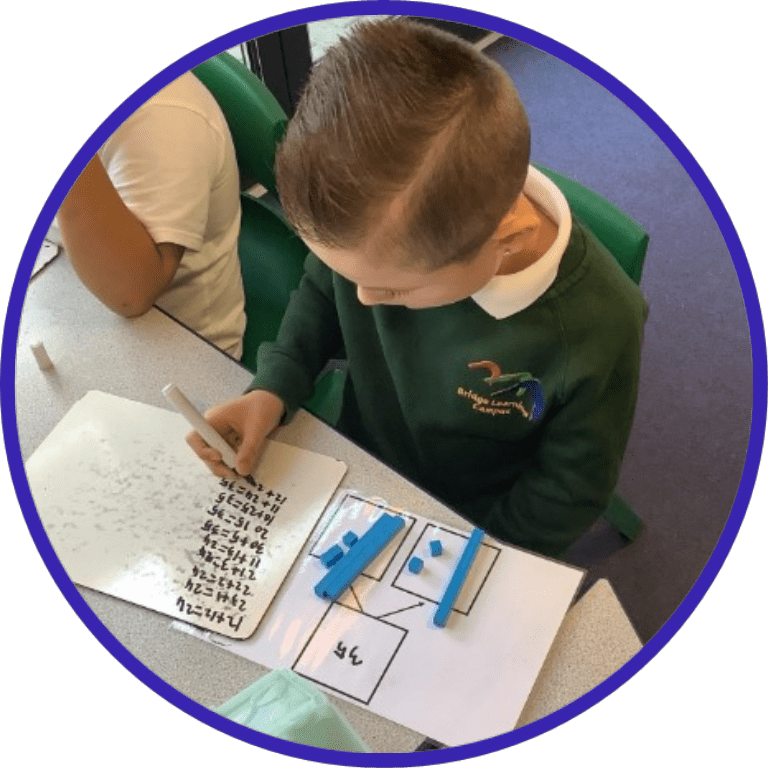
Impact:
Through formative and summative assessment, we are able to identify the children’s strengths, as well as target their gaps in knowledge.
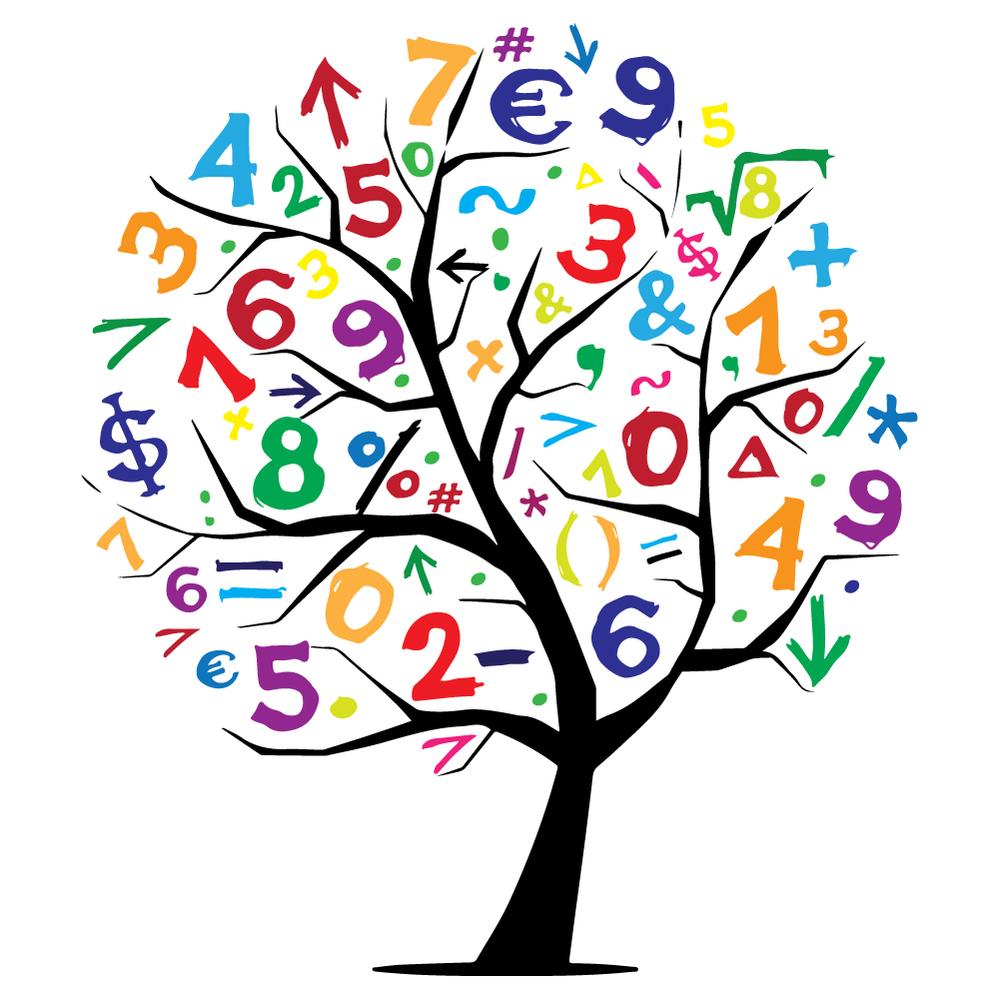
A fluent mathematician can:
- Understand the number system, particularly
place values and fractions, decimals and percentages. - Recall key number facts (times tables
& number bonds) instantly, including inverse facts. - Use the four number operations accurately
and effectively.
A mathematician who reasons can:
- Demonstrate graft and resilience through trial and error, and improvement,
- Work logically and systematically to solve number problems,
- Dare to challenge themselves to apply deeper thinking,
- Identify mathematical patterns,
- Visualise mathematical problems using a range of models, work backwards and use inverse operations
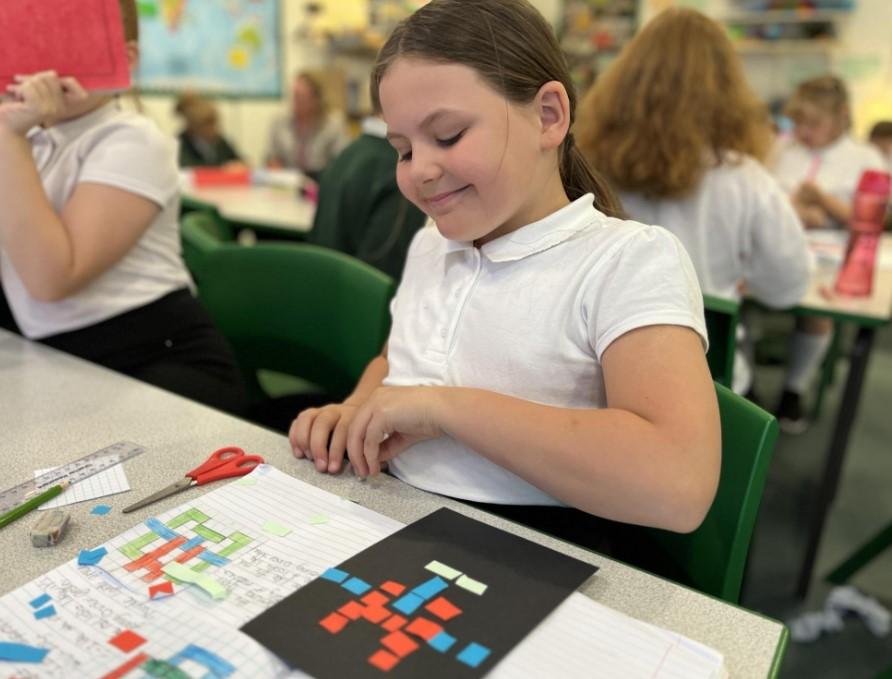
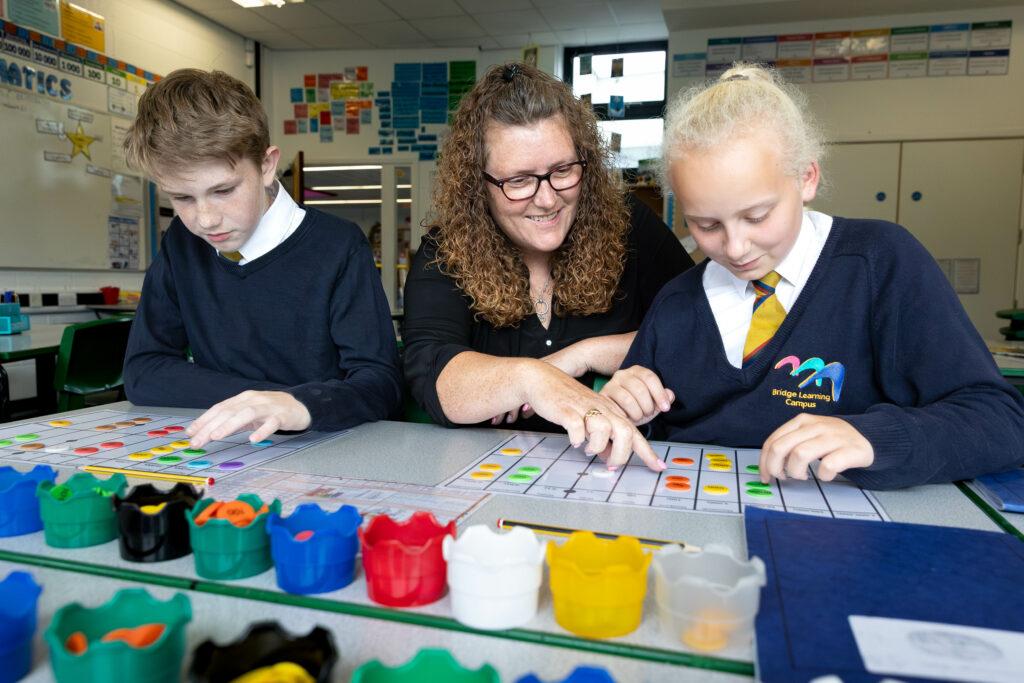
How we build the maths curriculum:
At BLC, we are determined that all of our children become fluent with their mathematical knowledge and can then apply this to reasoning questions. However, we know that this will take time and ensuring fluency is the first step. Therefore, we have developed an approach that allows reasoning style questions to be introduced over time, allowing children to become fluent with mathematical concepts first.
Daily Review
All classes from Year 1 to Year 6 start their maths lesson with a Daily Review. This could be in a variety of forms such as: a set of questions linked to previous learning, an application of skills task. The purpose of Daily Review is to support the level of fluency a pupil has with weekly and monthly review.
Recall
The class teacher checks the children’s recall of prior learning with an example from the previous lesson.


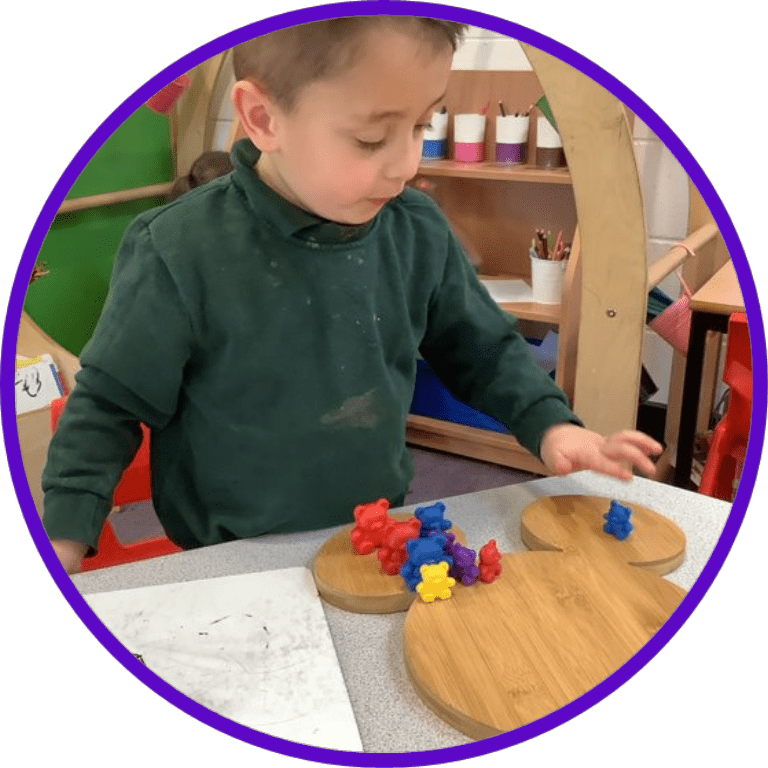
Learning Aim
It is important that the children understand why they are learning something new in maths. Teachers explain what the children will be able to achieve at the end of the unit/block or lesson.
E.g. We need to learn this maths because …………… we want to be able to solve this problem ………..
Modelling – I do
The teacher models clearly (thinking aloud to articulate their thought process) every single step to success.
The teacher will:
- Read the problem
- Establish prior knowledge
- How can I draw/represent this?
- Layout the calculation
- Complete the calculation
- Check the answer is reasonable
Scaffolding – We Do
The teacher places another question on the board and guides the children through each step above, pausing for the children to complete the steps before moving on.
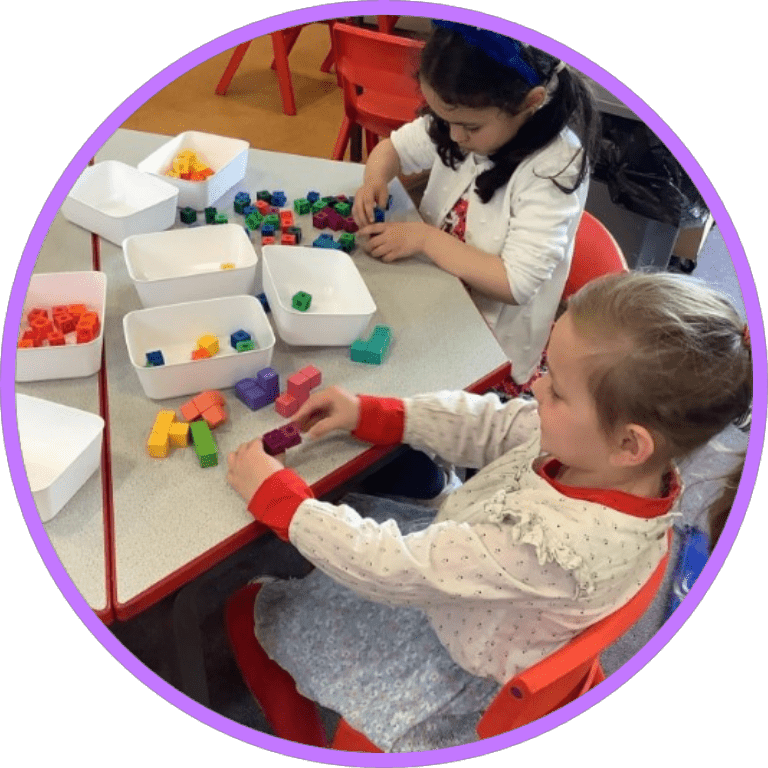
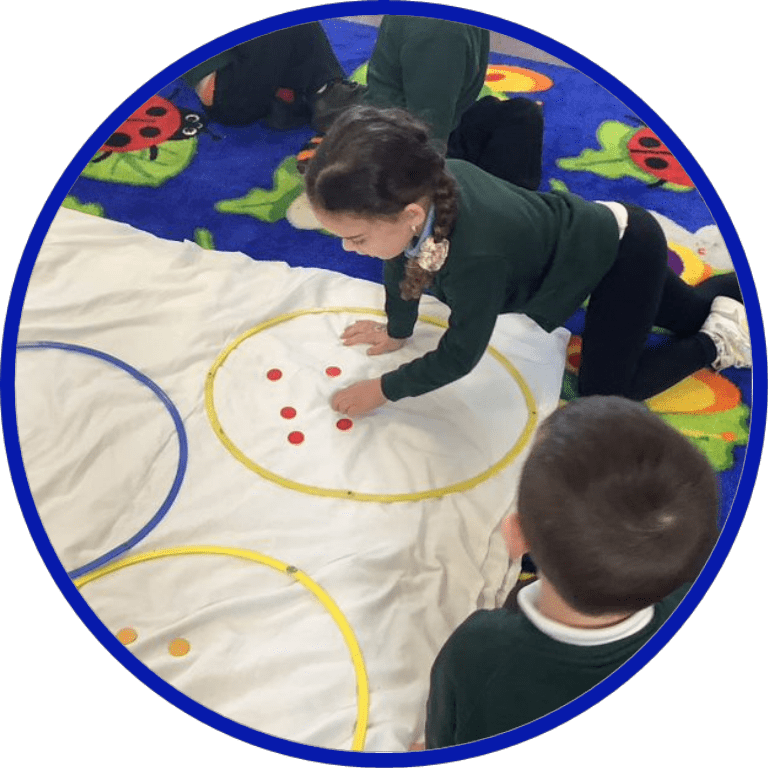
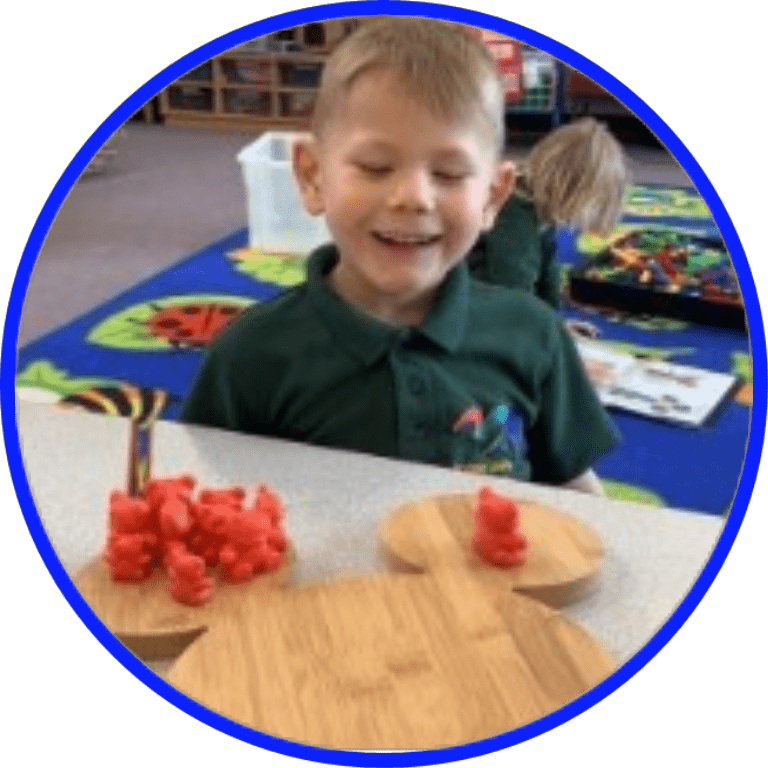
Observes/Assesses Understanding – You Do
At this stage, the children work independently to complete another similar question. During this time, the teacher and/or teaching assistant will weave the room to check who is ready to move on to independent work. Any children who are not ready to move on will form a small focus group and receive further support.
Independent Learning
This provides all children with the opportunity to practice the skills they have just been taught. They will be given a range of fluency and reasoning questions which are sourced mainly from White Rose maths but supplemented with other resources. For the majority of children, this will be completely independent. For some children, support will be given in order to help them understand the process. These groups remain flexible throughout the lesson, allowing the teacher to respond to the class’ needs.
During this step, the children will often mark their own work to check accuracy.
Knowledge Organisers
Click on the links to download the knowledge organiser for each year group.
Maths Curriculum Document Links
- Maths Curriculum at Bridge Learning Campus
- Number Sense Maths – Times Tables Parent Guide
- EYFS Number Sense Maths Framework Map
- EYFS Number Sense Maths Yearly Overview














